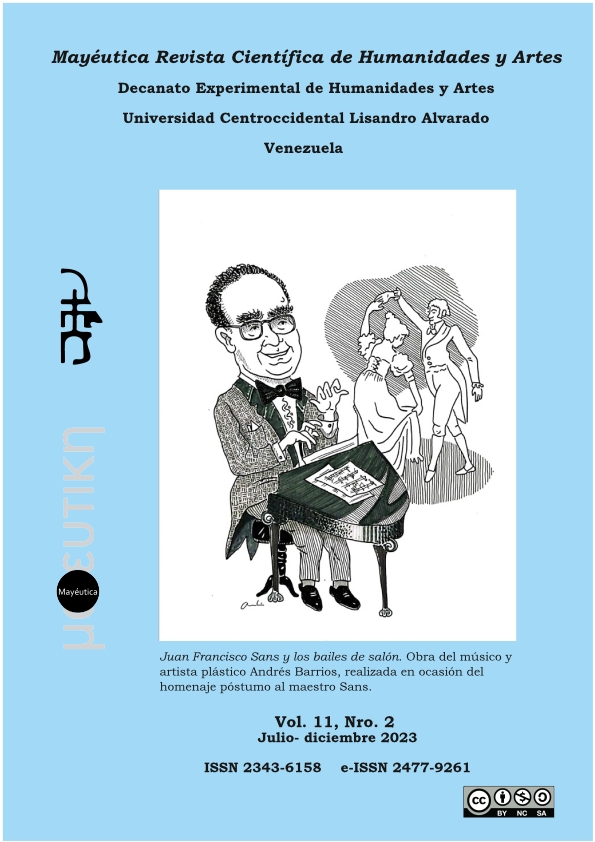A trial on unpatriotism, disobedience and attempted suicide
“Solicitaba medios para darse muerte, aunque fuera con una estaca”
DOI:
https://doi.org/10.5281/zenodo.8127888Keywords:
Suicide, República de Colombia, canonical laws, Siete PartidasAbstract
This article reconstructs the judicial process followed in 1823 against Marcos Trujillo, an unlettered blacksmith who rendered services to the State in the times of the incipient República de Colombia (18211830). Faced with the few food rations he received for his work in the Maestranza de Pamplona and the separation from his family and his homeland, Trujillo decided to run away to be with his wife and children. This action constituted a crime of disobedience against the State, for which the Judge of the Villa de San Gil ordered that he be imprisoned and returned to the Maestranza to fulfill his obligations. On the way, Trujillo
injured his foot and, according to witnesses, asked for a wooden stake to take his own life before returning to Pamplona. To the crime of disobedience, it was added the crime of unpatriotism and the crime of attempting to kill himself, based on the facts of injuring a foot his foot and asking for a wooden stake to kill himself. Despite the fact that the legislation of the República did not specifically establish attempted suicide as a violation of the law, Trujillo was tried and imprisoned for three crimes. The Colonial rule did punish the attempted "muerte propia" and the burning of the suicide's corpse with the confiscation of property, and partly following the prerepublican religious tradition, both the Judge and the Prosecutor in the Trujillo case considered that the blacksmith did indeed violate the law on three grounds, although he was later pardoned.
Downloads
References
Alzate Echeverri, A. (2021). Repertorio de la desesperación. La muerte voluntaria en la Nueva Granada. 1727-1848. Editorial Universidad del Rosario.
Causa criminal contra Marcos Trujillo por herirse a sí mismo para no trabajar con el Estado. (1823). Sección República, Fondo Asuntos criminales, Legajo 12, No. de orden 020, folios 603 a 631. Archivo General de la Nación, Colombia.
Código Penal de la Nueva Granada, espedido por el Congreso en sus sesiones de 1837. (2019). Francisco Bernate y Francisco Sintura, editores y compiladores de la colección. Editorial Universidad del Rosario.
Congreso de Colombia. (1821, 30 de agosto). Constitución Política de 1821. Biblioteca virtual Miguel de Cervantes. https://bit.ly/3PLSIAs
De la Pradilla Barnuevo, F. (1621). Suma de todas las Leyes Penales, Canonicas, Civiles, y destos Reynos, de mucha utilidad, y provecho, no solo para los naturales dellos, pero para todos en general. Acosta de Andres de Carrasquilla, Mercader de Libros.
Fabregat Peredo, M. (2017). Justicia y procedimientos judiciales por suicidio e intento de suicidio. Chile: 1820-1920. Tesis para optar al grado de Doctor en Historia, Mención: Historia de Chile. Universidad de Chile.
Leyes del Fuero-Juzgo. (1892). Libro Sexto, De los Malfechores. Titulo Primero. De los que Acusan los Malfechores, Ley VIII. Eurico [rey de los visigodos, siglo V], Isidro Hernández Pacheco, Notario del Santo Oficio, Madrid. bit.ly/3pFjtfi
González Pérez, M. (2022). “El Antipatriota. Causa criminal seguida a un herrero colombiano en 1823”. Boletín de Historia y Antigüedades. Academia Colombiana de Historia, 119-142.
Las siete partidas del muy noble Don Alfonso el Sabio. (1843). Glosados por el Licenciado Gregorio López, del Consejo Real de Indias de S.M. Compañía General de Impresores y Libreros del Reino, Título XXVII.
Novísima recopilación de las Leyes de España mandada formar por el Señor Don Carlos IV. (1805). Libro XII, Título XXI, Ley XV, impresa en Madrid.
Published
How to Cite
Issue
Section

This work is licensed under a Creative Commons Attribution-NonCommercial-ShareAlike 4.0 International License.





